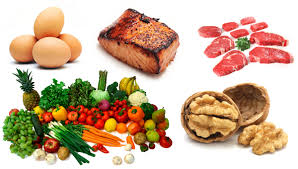The Paleolithic Diet–An Ancient Solution to a Modern Problem
Traditional Chinese Medicine doesn’t recommend a paleo diet for all, but certainly a healthy whole food diet is the foundation for good health. We work hard to stay on top of health trends and new information so that we can help you be at the top of your game.
What is a paleo diet?
 The caveman diet, also known as the Paleolithic (or Paleo) diet, is a minimalist, back-to-basics diet plan based on eating foods that many of our ancestors ate 100,000 years ago. The hunter-gatherer diet consisted of protein from lean meats and carbohydrates from plenty of fruits and vegetables. It does not include dairy, grain, and legume products.
The caveman diet, also known as the Paleolithic (or Paleo) diet, is a minimalist, back-to-basics diet plan based on eating foods that many of our ancestors ate 100,000 years ago. The hunter-gatherer diet consisted of protein from lean meats and carbohydrates from plenty of fruits and vegetables. It does not include dairy, grain, and legume products.
The premise of the Paleo diet is simple enough–if a caveman couldn’t eat it, neither can you. Genetically, we have changed very little from the Stone Age. Our digestive systems are not equipped to handle all of the foods that are available today. Obesity–a modern day issue–was simply not a factor for the hunter-gathers of the past. One reason for this may be due to a lack of refined carbohydrates, processed foods, and animals that are treated with chemicals, hormones, and antibiotics.
Food suggestions from our ancestors
- It is important to choose organic, range-fed animals and to avoid processed meats and meats that are high in fat.
- Consume wild fish, as omega-3 fatty acids help support the immune system.
- Eat an ample amount of various organic fruits and vegetables.
- Carbohydrates from vegetables such as carrots, potatoes, and winter squash should be used as a healthy alternative to refined foods.
- Almonds, cashews, hazelnuts, pumpkin seeds, and sunflower seeds are an important part of the paleo diet because of their high protein content, as well as being rich in essential fatty acids.
Foods that are avoided in Paleo
There are a number of foods that are not allowed on the paleo diet, including:
- Dairy products, such as butter, cheese, milk, and yogurt
- Soft drinks and fruit juices because of their high sugar content
- Grains like cereals, bread, crackers, wheat, and pasta
- Legumes, including all beans and peas
Wholefood supplement options
Managing our health in the fast-paced, high stress world we live in can be a challenge. Eating natural, whole, or organic foods is certainly a large part of a healthier lifestyle, but we may also need to supplement our diet with natural, high-quality wholefood-based supplements. Whole food supplements originate from all-natural whole foods and food concentrates that are believed to be vastly superior to off-the-shelf vitamins and minerals. Because wholefood supplements incorporate the complete nutrition of the food, the body can absorb the nutrients far more effectively than it can through synthetically manufactured sources.
It is important to mention that most smart supplementation with pure, natural, unprocessed supplements, can still fit into the paleo diet.
The paleo diet may be a challenge to follow, but in time, you may eventually forget the foods you thought you could not live without–and living longer without them may be your ultimate reward!
Is paleo right for you?
Maybe, maybe not. Let us help you find your healthiest dietary choices. And, get an acupuncture session while you’re at it! We’ll come to you to make it as easy as can be.
